Isoleucine and Hair Growth: Mechanism of Action
Isoleucine is a branched-chain amino acid and one of the not-so-secret ingredients in Divi's Scalp Serum, Conditioner and Shampoo. This amino acid has a potent growth-stimulating effect and can be extremely helpful in the fight against premature hair loss and hair breakage.
What is Isoleucine?
Isoleucine is essential to hair growth. It's one of 20 amino acids forming the building blocks of every protein in the human body.
Some amino acids are essential, while others are non-essential. Isoleucine is an essential amino acid, along with histidine, leucine, lysine, methionine, phenylalanine, threonine, tryptophan and valine. These nutrients are referred to as "essential" since they cannot be synthesized by the body and must be obtained from dietary sources. Concerning hair- and scalp-related benefits, isoleucine can be supplemented with certain scalp care products, like Divi's Scalp Serum, Conditioner and Shampoo.
Branched-Chain Amino Acids (BCAAs)
Isoleucine is one of three branched-chain amino acids, or BCAAs, and the other two are leucine and valine. These amino acids are named for their molecular structure; their "side chains" include one carbon atom connected to three or more other carbon atoms.
BCAAs are among the most important amino acids concerning protein synthesis. Human hair is predominantly made of protein, making branched-chain amino acids vital to the growth and maintenance of robust and healthy hair. This is why isoleucine, valine and l-leucine pop up in some of the best hair and scalp care products on the market, including our Scalp Serum, Conditioner and Shampoo.
Isoleucine's Role in the Body
Besides its hair growth-stimulating effect, isoleucine is involved in various other biological mechanisms essential to human health. For instance, this essential amino acid contributes to normal liver function, pancreatic function, blood sugar regulation, immune function and muscle repair.
Sources of Isoleucine
The isoleucine your body uses to grow new hair comes from the food you eat. Some of the best dietary sources are:
- Turkey
- Sesame seeds
- Pumpkin seeds
- Sardines
- Lentils
- Dairy products (like milk)
- Meat products
- Soybeans

Without amino acid-enriched scalp care products like ours, these food sources would be your body's only source of these essential compounds. Now you can top-up your hair and scalp's amino acid supply every time you shampoo, condition, or treat your hair, thanks to Divi's product range.
How Does Isoleucine Support Hair Growth?
We've established that the human body uses amino acids to build hormones, send messages between cells, repair tissues, and create new structural proteins.
Unsurprisingly, a deficiency in any amino acid can adversely affect hair growth. Equally, increasing your intake of essential amino acids – whether internally or via topical treatments – has the potential to boost hair growth.
As an essential, branched-chain amino acid vital to many biological functions, isoleucine can support healthy hair growth and reduce hair loss via various interrelated mechanisms, including:
- Promoting hair protein synthesis
- Opening potassium ion channels
- Supporting hair loss medications
- Avoiding stunted hair growth
What Else Do I Need to Know About Isoleucine?
When it comes to BCAAs and their role in hair growth, there's a whole lot of misinformation out there. To put your mind at ease and ensure you can enjoy the growth-promoting benefits of Divi's product lineup with complete confidence, we'll be addressing some other key questions about isoleucine and its relationship with your soon-to-be luscious locks.
Isoleucine: Vital for Hair Protein Synthesis
All amino acids are necessary for protein synthesis, but BCAAs have a significant role due to their unique molecular structure. Human hair is around 91% protein. Keratin, the main protein in the hair's shafts, is made of 18 amino acids.
Despite what pop-beauty science literature would have us believe, there are many different keratin types falling into one of several groups. Isoleucine is a major structural component of type II keratins, which are prevalent in human hair. Without isoleucine, your body can't synthesize enough keratin to produce robust and healthy hair. It’s as simple as that.
How Do Divi’s Products Help?
Regular use of isoleucine-containing products (like our Scalp Serum, Shampoo, and Conditioner) can support hair growth and maintain hair condition by topping it up with one of its most important components.
Many products claim to stimulate hair growth, and while these may be useful, stimulation will only do the trick if your hair follicles have suitable "building materials'' on hand.
Isoleucine Supports Potassium Ion Channels
Potassium ions are the power source every cell in the human body needs to function normally. These ions move within and between cells via protein conduits known as potassium ion channels. Many studies link the degradation of these potassium ion channels to premature hair loss, in particular, androgenic alopecia, or male-pattern baldness.
This correlation between channel degradation and hair loss led researchers to hypothesize that damage or "shrinkage" to potassium ion channels can lead to impaired function in the hair follicle cells responsible for hair growth.
Where Does Isoleucine Come In?
The amino acid composition of the body's potassium ion channels varies from one cell type to the next. In human hair follicles, l-leucine, isoleucine and valine (the three BCAAs) are the most important components in the potassium ion channels.
Scientists have demonstrated that damaged or closed potassium ion channels can be "reopened" with support from topical or internal isoleucine and other branched-chain amino acids. The results of these studies show that reopening these channels is a potential mechanism for hair re-growth and loss prevention.
How Long Does This Effect Last?
If you're supplementing your diet with amino acids or using our Scalp Serum to improve scalp health and support hair growth, it's essential to do so regularly and continually. Discontinuing use could lead to a spike in hair fall due to a sudden reduction in hair follicle function.
Isoleucine Products as an Alternative for Hair Loss Treatments
Many prescription hair loss medications, like minoxidil, support hair growth via a very similar mechanism to isoleucine, in that they promote normal hair follicle function by reinforcing or reopening potassium ion channels.
BCAAs, like isoleucine, could therefore aid in the efficacy of these prescription hair loss medications by “doubling down” on this channel-enhancing mechanism.
Scalp treatments containing isoleucine (like Divi’s Scalp Serum) could also be a viable alternative to pharmaceutical hair loss medications for people dealing with androgenic hair loss, as the mechanisms of action are similar.
Keep in mind that this information should not be taken as a substitute for professional medical advice.
The Bottom Line: Amino Acid Deficiency Can Stunt Hair Growth
An amino acid deficiency could have a serious adverse effect on your hair, especially if you’re lacking in an essential branched-chain amino acid, like isoleucine.
If you’re experiencing an amino acid deficiency, your hair will be one of the first places it shows (if not the first place). This is especially true where essential amino acids like isoleucine are concerned, as your body cannot synthesize them itself – they can only be acquired through food or topical treatments.
Hair is often the first thing that suffers if you’re missing one of these vital protein building blocks, as healthy, beautiful hair is not necessary to sustain life (I know, who’d have thought it?!). When your body has an insufficient supply of isoleucine, it will reserve what it does have for vital biological functions like muscle repair and central nervous system regulation. Short-term deficiencies rarely cause a noticeable problem, but long-term, insufficient isoleucine intake can cause:
- Increased hair fall (caused by a shortened hair growth cycle)
- Weakened or thinning hair
- Slowed hair growth
- Abnormal or premature hair loss
Boosting hair’s exposure to isoleucine and other essential amino acids (both topically and internally) is one of the simplest and smartest things you can do to promote hair growth.
Environmental Factors and Hair Growth
Damage to hair caused by environmental factors may appear to grow slower simply because it breaks sooner. Such environmental factors include heat, styling, chemical exposure, stress and poor diet. Research shows that topical treatment with products containing strength-building amino acids can limit this breakage. In this way, regular use of our Scalp Serum, Shampoo & Conditioner can give the impression of hair growth speeding up, as it can reach a greater length.
Do Hair Care Products Containing BCAAs Cause Hair Loss?
No. Using products containing isoleucine, valine or l-leucine will not cause hair loss.
There is a prevailing myth that people who use hair products containing isoleucine, valine or l-leucine may be risking increased hair loss. We are extremely pleased to tell you this absolutely is not a risk where topical hair and scalp care products are concerned.
The only time BCAAs like isoleucine could contribute to hair loss is if they’re being taken in extremely high doses as a dietary supplement, alongside intense physical resistance training, and only if this regime contributed to excess testosterone production. Our scalp care products will not cause a surge in testosterone production.
Isoleucine: An Essential Hair Growth Ingredient
When it comes to stimulating hair growth, the amino acid isoleucine is not a magic bullet – but then, there’s no such thing. The objective should be to cultivate a garden for hair to grow, and this garden is the scalp. This is why our products focus on improving your scalp’s health.
Products containing isoleucine, like Divi’s Scalp Serum, Shampoo & Conditioner, are fantastic additions to any scalp care routine and absolutely can support healthy hair growth.









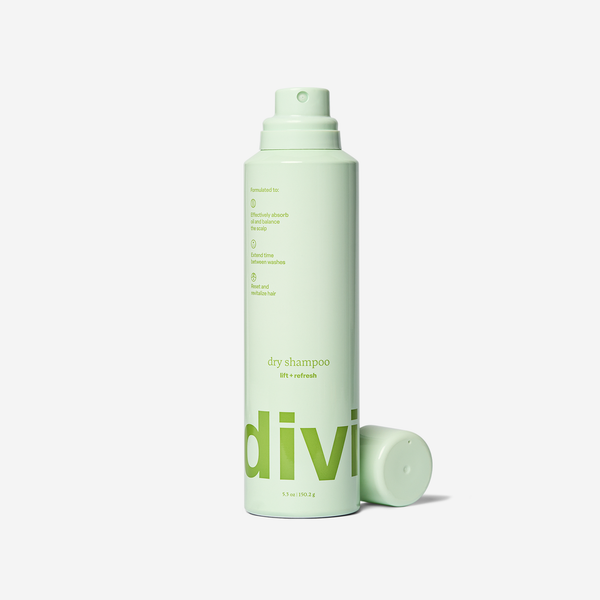

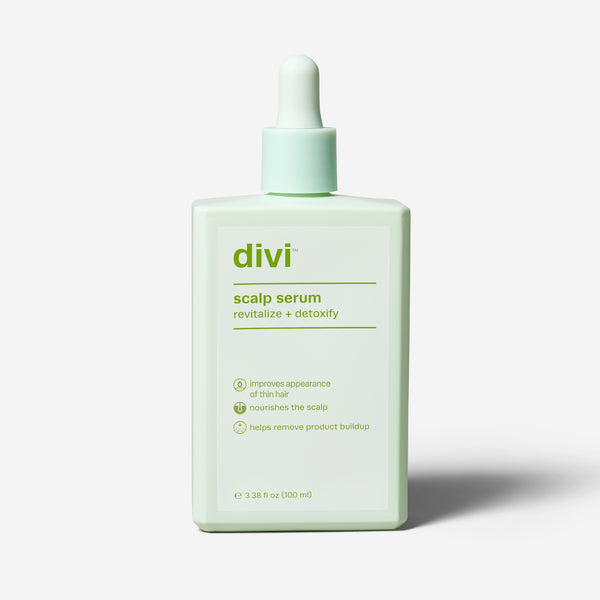

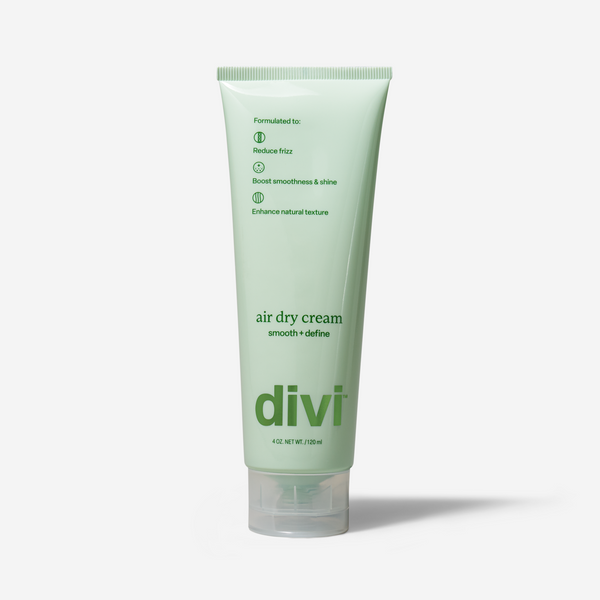
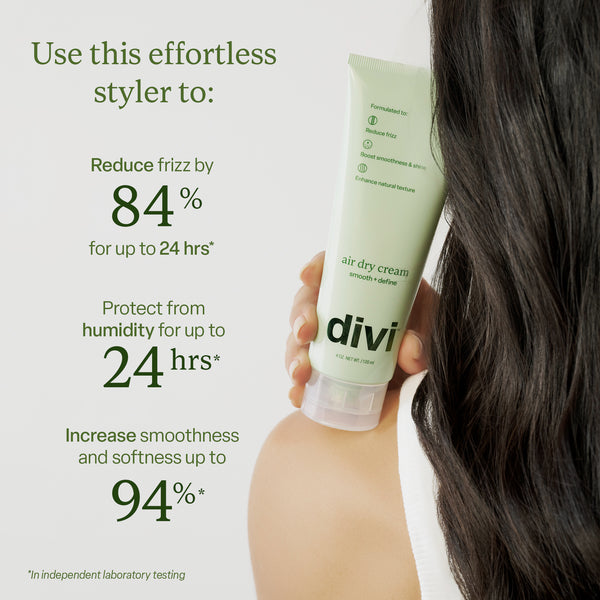
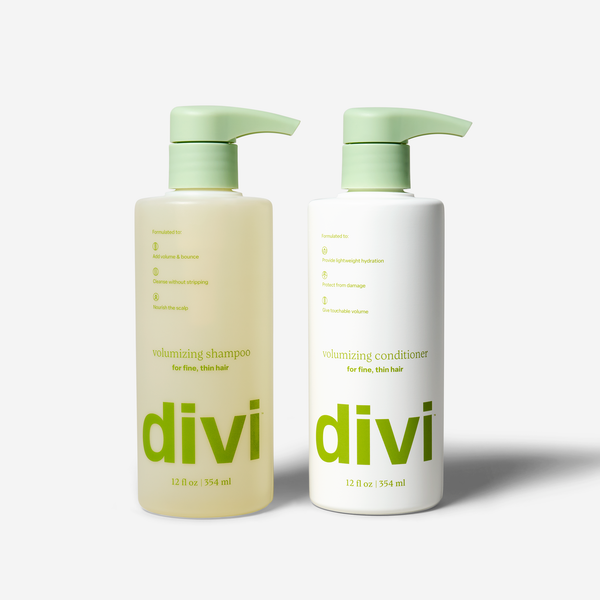

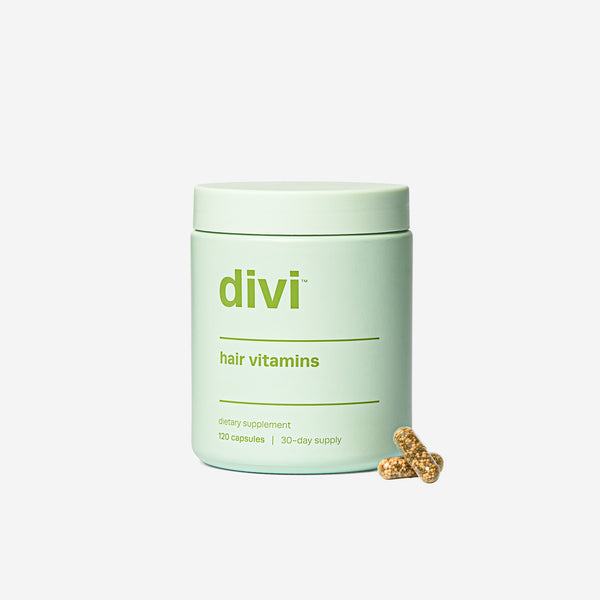
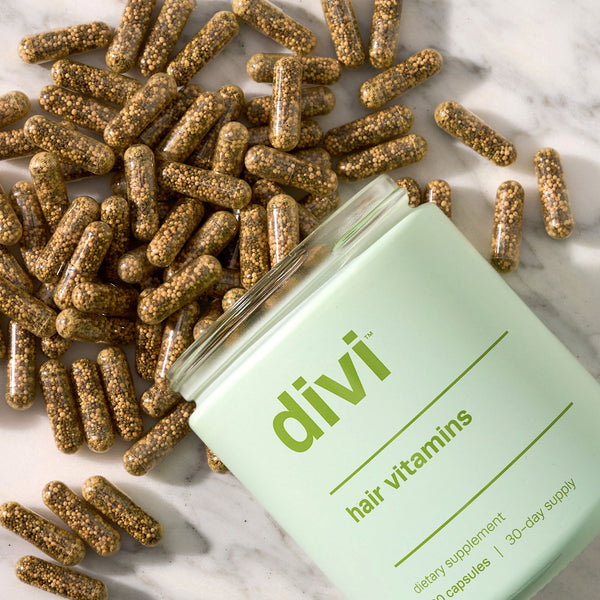
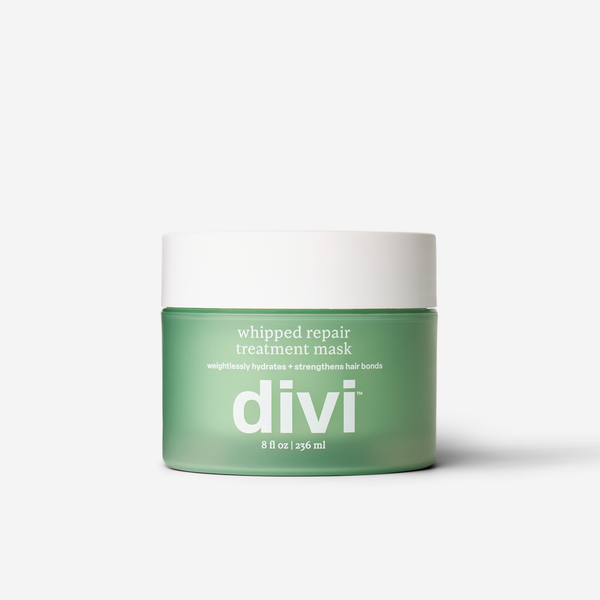
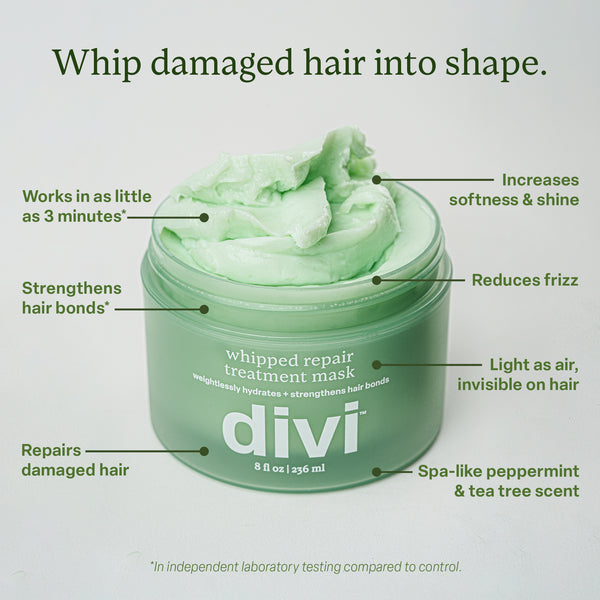
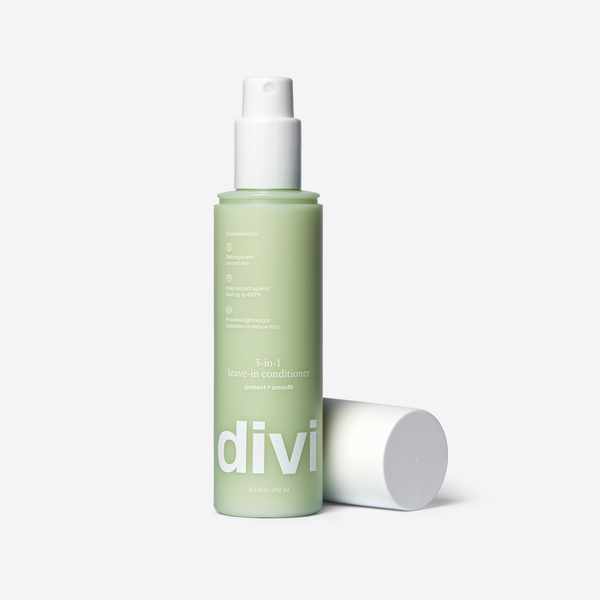



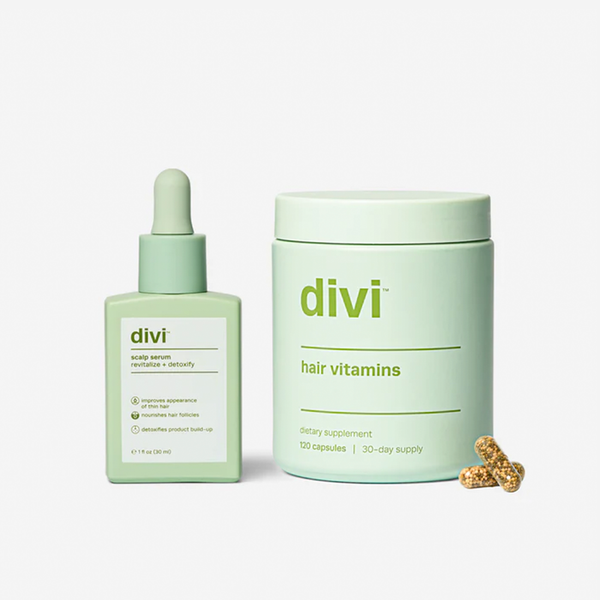
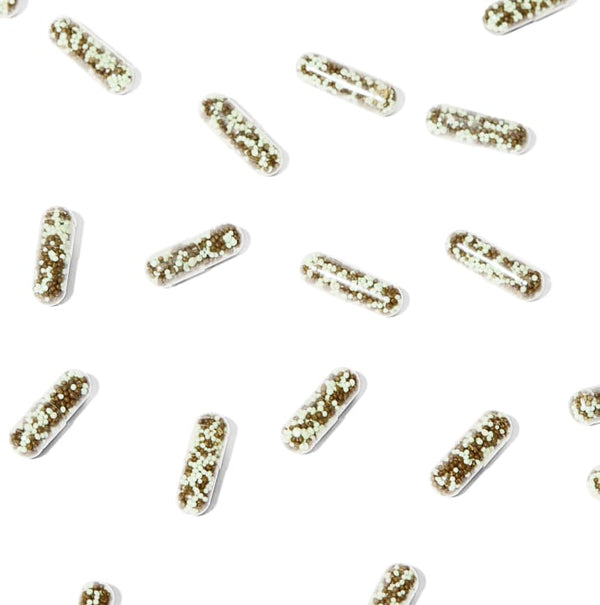
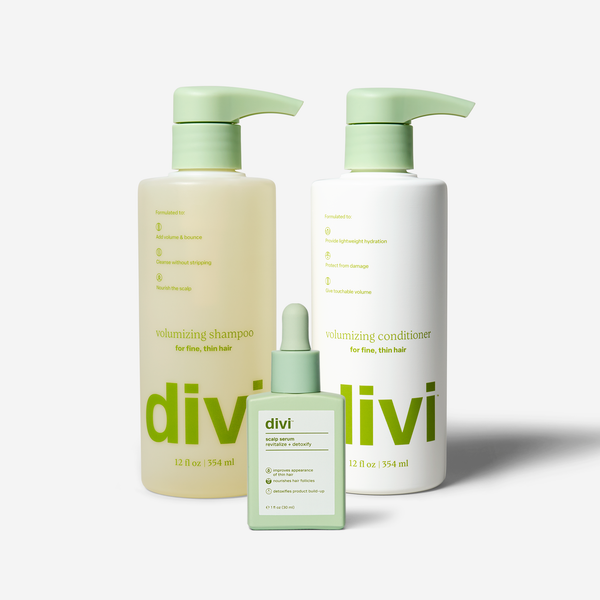
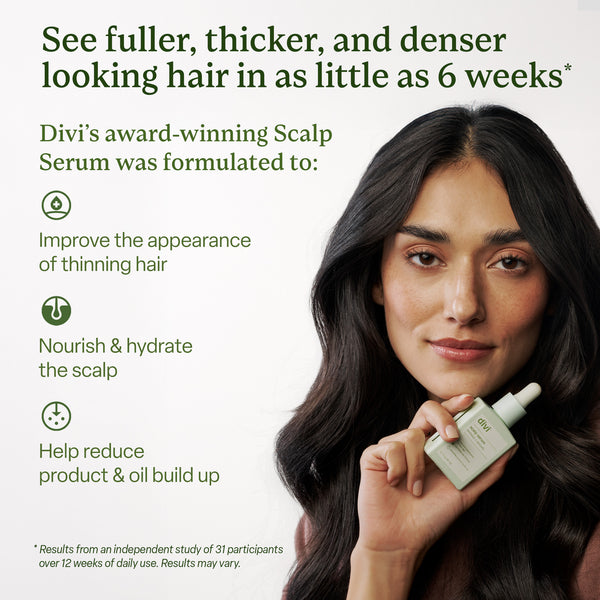


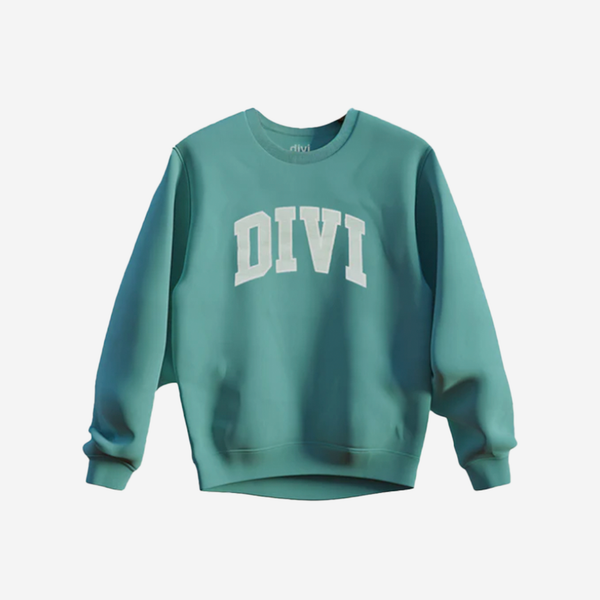








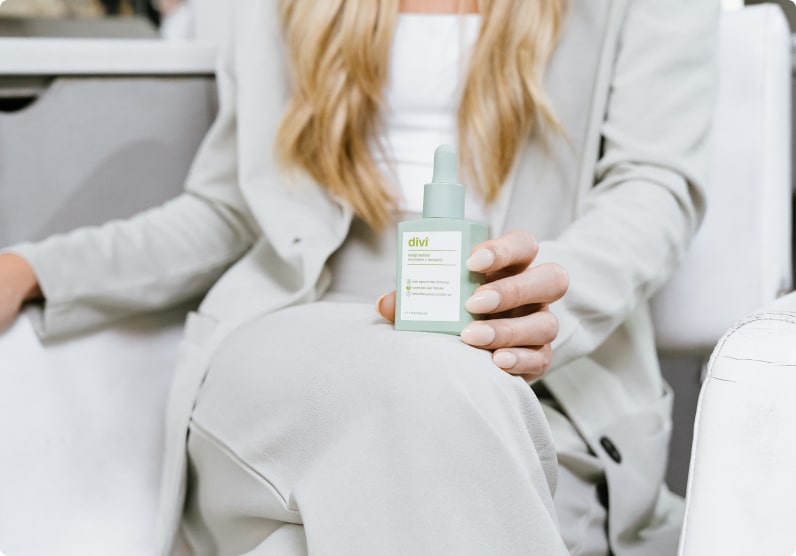






 30ml Scalp Serum
30ml Scalp Serum
 100ml Scalp Serum
100ml Scalp Serum
 Volumizing Shampoo
Volumizing Shampoo
 Hydrating Shampoo
Hydrating Shampoo
 Volumizing Conditioner
Volumizing Conditioner
 Hydrating Conditioner
Hydrating Conditioner
 3-in-1 Leave-In Conditioner
3-in-1 Leave-In Conditioner
 Best Sellers Bundle
Best Sellers Bundle
 Volumizing Starter Bundle
Volumizing Starter Bundle
 Hydrating Starter Bundle
Hydrating Starter Bundle
 The Healthy Hair Bundle
The Healthy Hair Bundle
 Hair Vitamins Trio
Hair Vitamins Trio
 Dry Shampoo
Dry Shampoo
 Hair Vitamins
Hair Vitamins
 Volumizing Shampoo & Conditioner
Volumizing Shampoo & Conditioner
 Travel-Sized Volume Duo
Travel-Sized Volume Duo
 Hydrating Shampoo & Conditioner
Hydrating Shampoo & Conditioner
 Travel-Sized Hydrating Duo
Travel-Sized Hydrating Duo
 Travel-Sized Dry Shampoo
Travel-Sized Dry Shampoo
 Travel-Sized Dry Shampoo Trio
Travel-Sized Dry Shampoo Trio
